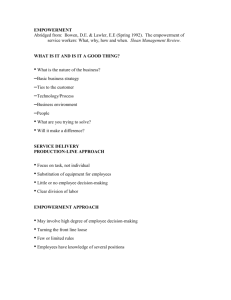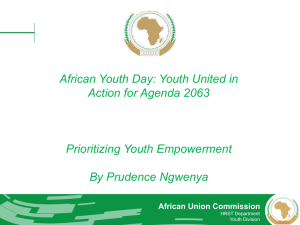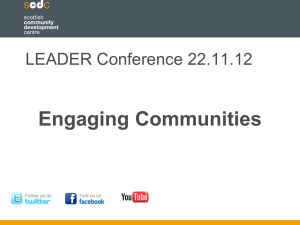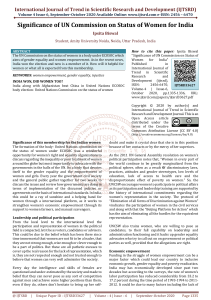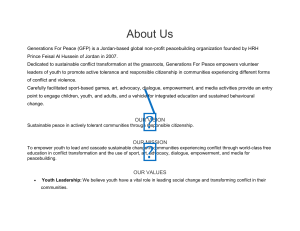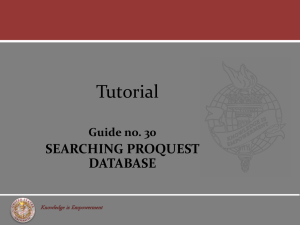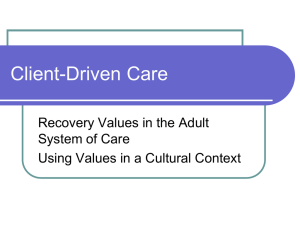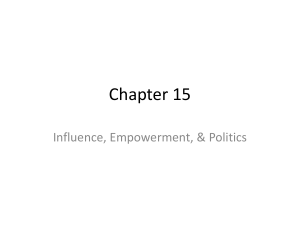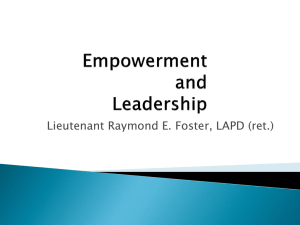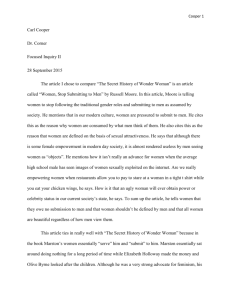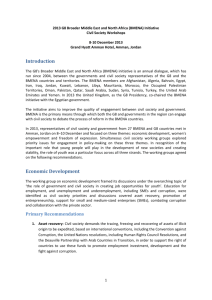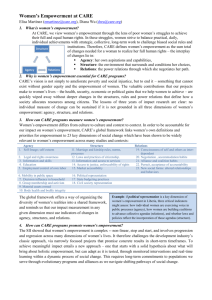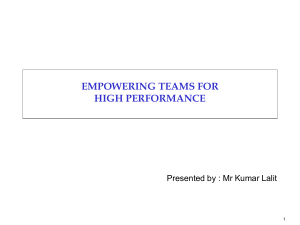NATIONAL POLICY FOR EMPOWERMENT OF WOMEN 2001
advertisement
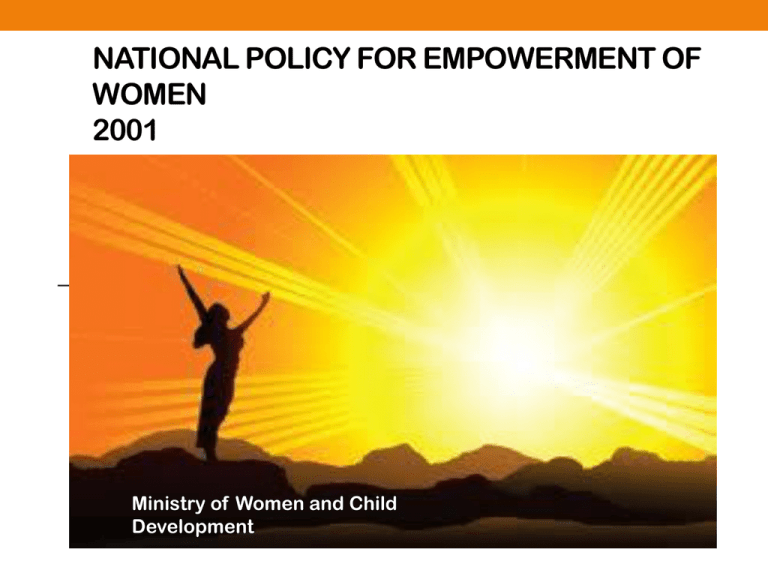
NATIONAL POLICY FOR EMPOWERMENT OF WOMEN 2001 Ministry of Women and Child Development Women empowerment refers to increasing the spiritual, political, social or economic strength of women. It often involves the empowered developing confidence in their own capacities. GOALS OF THE POLICY Advancement, development and empowerment of women in all spheres of life. Encourage active participation of all stake holders. PUBLIC GOOD IN POLICY • Supporting Positive economic • • • • • • and social policies. Ensuring fundamental and human rights. Equal access to participation and decision making. Strengthening legal systems. Mainstreaming a gender perspective and Changing societal attitudes. Elimination of discrimination. Building and strengthening partnerships with civil society. Stakeholders' •In Narrow Perspective: Our Women Folk only •In Broader Perspective: every one of us Reason: can we develop ourselves while keeping our other half subordinate and deprived of basic rights ? A society cannot develop to its full potential until half of its population is also developed and has full say in every walk of our life. ELEMENTS OF THE POLICY Poverty Action Plan Health Decision Making Education Women Empowerment Judicial Reforms Nutrition Fighting Violence Housing IMPLEMENTATION ISSUES • Various proposals mooted are Institutional Mechanisms a. National and State Councils for Women b. National and State Resource Centres c. Self-Help Groups Legislative Mechanisms. Gender Sensitization. Resource Management SUCCESSES ACHIEVED • Legislative Actions a. Protection of women from Domestic violence act,2005 b. Hindu marriage (amendment) act • Various schemes being introduced and implemented.( Sabla scheme, IGMSY etc.) • Concept of GENDER BUDGETING STILL A LONG WAY TO GO…… • National and State councils for women still on paper. • National and State resource centers not functioning. • Major legislative affirmative action of Women Reservation Bill still pending in Parliament. • Not much participation of Private sector . • Gender Sensitization not being effectively done. MERITS OF THE POLICY • Emphasize economic empowerment of women. • Prioritizes women education, health and sanitation • Recognizes the special needs of weaker sections, SC/ST, minorities etc. • Comprehensively lists the action plan and institutional mechanisms needed. • Prescribes measures to achieve gender sensitization . DEMERITS Inadequate fund in gender budgeting Finding targets Gender Auditing Resource management marketing in human and No Social security in informal sectors, EPZ, SEZ Developed Countries like Euro Zone and USA Civil and political Rights Economic and Social Rights Security of women Middle Eastern Countries Economic and Social Rights Civil and political Rights Security of women Convention on the Elimination of All Forms of Discrimination Against Women(CEDAW) Convention on preventing and combating violence against women and domestic violence Convention on the Political Rights of Women Maputo Protocol ALTERNATE POLICY RECOMMENDATIONS Improvised and well-coordinated data collection system required to strengthen Gender Auditing, Gender Budgeting and Satellite Accounting. Greater fund allocation implementation. Future policy making requires identification of diverse and deeprooted causes behind poverty, female foeticide, dropout issue, etc. Measures to promote Awareness Building, Gender Equality and Gender Equity highly recommended, along with increased and effective government intervention to mitigate higher degree of evil practises. and emphasis on decentralised Conclusion Current policy elaborate. quite Need of the hour – More Inclusive and Integrated Policy for Economic, Social and Political Empowerment of Women. Effective implementation at the grassroots needed to ensure improvements in current living status of women. THANK YOU
